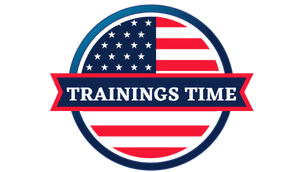Description
RECORDED TRAINING COURSE
The US Department of Labor has stepped up its enforcement efforts in this area in part by adding investigators. Wage and hour lawsuits are on the rise and often end up costing employers multi-millions of dollars. In addition to the unpaid wages, you can end up owing the same amount in liquidated damages that’s right, double the amount of unpaid straight time and overtime pay. If that’s not enough, as long as an employee wins even one penny of unpaid wages, you can also be on the hook for the employee’s attorney fees. Since many wage and hour cases are class action lawsuits, the number of money damages can multiply exponentially. While employers have a basic understanding of wage payment issues, dealing with supplemental pay can present its own challenges.
According to Robert Boonin, an attorney in Michigan, For the most part, an employee’s exempt status is determined by the employee’s primary duties and whether those duties are exempt. Now, the DOL’s new overtime rule concerning the specific exempt positions may require employers to reclassify their employees. The main component of these rules is that the salary threshold will increase, pushing many otherwise exempt employees into the non-exempt (aka overtime eligible) category.
SESSION HIGHLIGHTS:
- Understanding who is a covered employer/employee
- Overtime basics
- On-call & waiting time
- Meals, rest, and sleeping breaks
- Why or when do you have to pay for breastfeeding
- Commuting vs local vs long-distance travel
- Training time
- Preliminary/postliminary activities
- Recordkeeping requirements
- Practical steps to take in anticipation of the new overtime rule’s finalization to stay off the DOL’s radar
- The difference between the newly proposed DOL rule on overtime exemptions and the Obama-era proposal concerning
- White-collar exemptions, salary basis, and more
- How the proposed rule will affect highly compensated employees
- Updates to salaries to keep up with the cost of living
- How bonuses will factor into the salary threshold for exemption
Why You Should Attend:
This session will help you understand areas such as when you may and may not have to pay employees to get dressed and undressed (known as “donning and doffing” cases); when you do and do not have to pay them for time spent traveling, for breaks, on-call time or even time spent breastfeeding. Except for this, we will also discuss which employees, may no longer be overtime-exempt under the new overtime rules and what you should do to be prepared. By attending this session you can minimize your chances of DOL investigations and/or audits and wage and hour lawsuits.
Who Should Attend:
- Compensation officers
- Payroll
- Human Resources
- Senior Managers
- Business Owners
- CFO’s
- Controllers
Note: You will get access to the Recording link and E-Transcript; in your account and at your registered email address.





